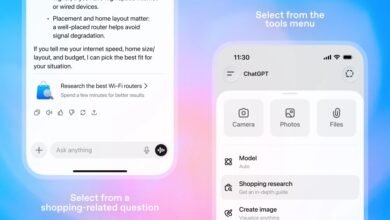Spotify Cracks Down on AI Music Clones and Low-Quality Content

▼ Summary
– Spotify is introducing new policies to address AI-generated music problems like spam, impersonation, and lack of disclosure about AI use in creation.
– The platform aims to protect authentic artists from spam and impersonation while allowing artists the freedom to use AI tools if they choose.
– Spotify is developing a new metadata standard with DDEX for labels and distributors to disclose when AI is used in any part of a song’s creation process.
– The company is enhancing its response to impersonation, which includes banning unauthorized AI voice clones or deepfakes of artists’ voices.
– Spotify denies rumors it adds AI music to playlists for financial benefit, stating all music is licensed from third parties and editors prioritize tracks that resonate with audiences.
The rise of AI music generators has introduced a wave of new content to streaming platforms, prompting Spotify to implement stricter policies aimed at preserving the integrity of its service. In response to growing concerns about AI-generated tracks, the company is taking steps to address issues like spam, unauthorized voice cloning, and the need for transparency around AI-assisted creation. These measures are designed to protect both artists and listeners while allowing for responsible use of emerging technologies.
According to Charlie Hellman, Spotify’s global head of music product, the platform’s primary objective is to shield genuine artists from spam and deceptive practices, ensuring that fans are not misled. At the same time, Hellman emphasized that Spotify supports artists who choose to incorporate AI tools into their creative process. The company aims to strike a balance between innovation and authenticity, acknowledging that AI can play a legitimate role in music production when used appropriately.
To promote greater transparency, Spotify is collaborating with DDEX, a music standards organization, to develop a new metadata framework for disclosing AI involvement in song creation. Sam Duboff, head of marketing and policy, explained that this standard will cover any use of AI, whether for generating vocals or instruments, or for assisting with mixing and mastering. So far, fifteen record labels and distributors have committed to adopting these disclosure practices, though a specific rollout timeline has not yet been announced.
Spotify is also strengthening its stance against impersonation, which includes the unauthorized use of an artist’s voice, whether real or artificially generated. This policy explicitly covers AI voice clones, deepfakes, and other forms of vocal replication created without permission. In addition, the platform is introducing a new spam detection system designed to identify uploaders who attempt to manipulate the service. Common tactics include posting tracks just over thirty seconds long to accumulate royalties or uploading duplicate content with altered metadata. Over the past year, Spotify removed 75 million spam tracks as part of these ongoing efforts.
Addressing speculation that the company adds AI-generated songs to its playlists to reduce royalty payments, Duboff firmly denied the claims, calling them “categorically and absolutely false.” He clarified that Spotify does not create or own any music on its platform; all content is licensed from third parties, and royalties are paid accordingly. While Duboff did not comment during the briefing on whether AI music appears in editorially curated playlists, he later provided a statement noting that tracks which appear to be primarily AI-generated see very low listener engagement. He reiterated that playlist editors select music based on audience appeal, not financial motives.
(Source: The Verge)





